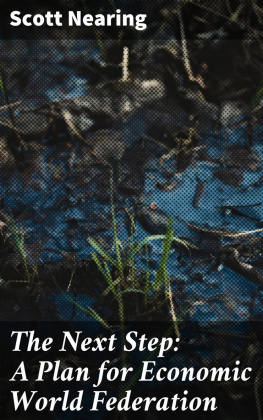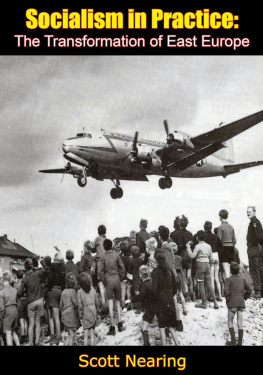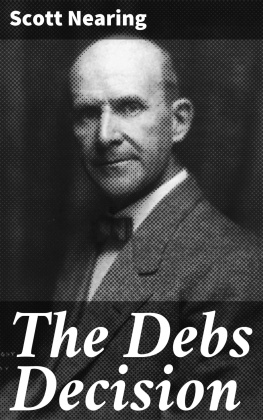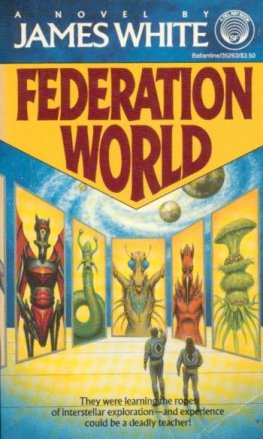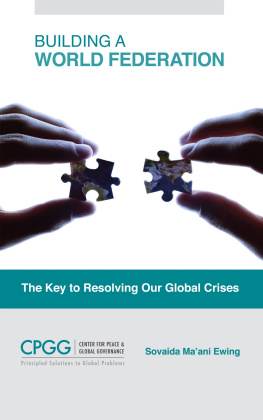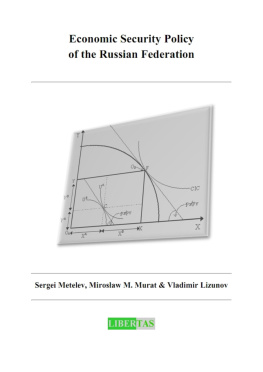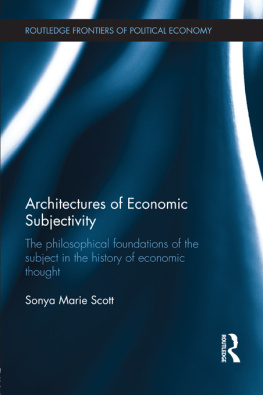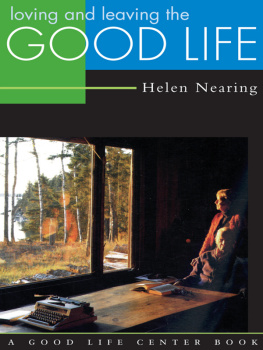I. THE NEW ECONOMIC LIFE
Table of Contents
1. The Historic Present
The knell of a dying order is tolling. Its keynote is despair. Gaunt hunger pulls at the bell-rope, while dazed humanity listens, bewildered and afraid.
Uncertainty and a sense of futility have gripped the world. They are manifesting themselves in unrest, disillusionment, the abandonment of ideals, opportunism, and a tragic concentration on the life of the moment, which alone seems sure. The future promises so little that even the most hopeful pause on its threshold, hesitant, and scarce daring to penetrate its mystery.
The war showed the impotence of the present order to assure even a reasonable measure of human happiness and well-being. Of what profit the material benefits of a civilization that takes a toll of thirty-five millions of lives and that wrecks the economic machinery of a continent in four short years? Yet the failure of the revolutionary forces to avail themselves of the opportunity presented by the war proved the unreadiness of the masses to throw off the yoke of the old rgime and to lay the foundations of a new order. The world rulers painted a picture of liberated humanity that led tens of millions to fight with the assurance that victory would make that hope a reality. The workers yearned for the social revolution and for the establishment of the co-operative commonwealth with its promise of equality and fraternity. But the events that staggered the world between 1914 and 1920 shattered both ideals.
Now that the terrible conflict has ceased, we pause and reflect. Millions are weary, millions are old, millions are broken, millions are disappointed, and the weary ones, the old ones, the broken ones and the disappointed ones have lost their vision and have abandoned their faith. Yet life sweeps onits unity unimpaired, its continuity unbroken, its force unchecked, its vigor unabated. Multitudes have been born since the end of the Great War, and other multitudes, who were babes in arms when the Great War began, are growing into young manhood and womanhood. The war, with its hardships and its fearful losses, is history. The present, merging endlessly with the future, makes of each day a to-morrow in which hundreds of millions of those who now inhabit the earth will live.
How?
That is the question which the world to-day faces. The answer is in our hands.
2. Economic Needs
Humanity has always been face to face with the bread and butter problem because people must have food and clothing and a roof over their heads or pay the penalty in physical suffering. Under the present world order, for lack of these simple economic requirements, millions of poverty-stricken workers perish each year, of slow starvation and exposure in Paris, London, Chicago, Tokyo; of famine in China, Egypt and India.
Some issues present themselves for consideration only occasionally. The demand for economic necessaries each day recurs with tireless insistence in the life of every individual. Men have learned this fact through frightful experiences, and they look forward with hope or with dread to the comfort of plenty or to the disaster of want. So effectually have these forces entered into everyday life that they color all aspects of human existence, and people continually think and act in terms of economic hardship or of economic well-being. This simple fact of economic determinismthe influence of the livelihood struggle upon the conduct of individuals and of societiesplays a fateful part in shaping both biography and history.
The economic issues before primitive society were comparatively simple ones. The producerthe hunter, herder, farmersnared his game and cooked it, tended his goats and lived on their milk and flesh, planted and reaped his crops, and used them to sustain life. Later, the baker, the saddler, the tailor and the carpenter spent their energies in producing the articles of their trade and in disposing of them. The herdsman could live on his hills, the farmer in his valleys and the artisans in their towns, content and at peace with the remainder of the world, neither knowing nor caring what was happening to their fellow dwellers on the planet. Confined within its narrow bounds, primitive thought was as local as primitive life.
But such isolation is no longer possible. The currents of economic life, like most other phases of human activity, have swept beyond the local forests, the grass lands, the tilled fields, the oven and the carpenter's bench, and gaining momentum in their ever-widening course, they have circled the world.
3. Worldizing Economic Activity
The past hundred years have witnessed a speedy worldizing of human affairs built upon a transformation in the ways of making a living. These changes have been effected by the industrial revolution, which, toward the end of the eighteenth century began to make itself felt in Great Britain. Its influence spread over Europe, America and Australia during the last three-quarters of the nineteenth century, but it did not reach Japan until 1860. Almost within the memory of the present generation, therefore, the scope of trade, manufacture and finance, the search for markets, the organization and unification of labor and of popular thinking about economic problems, have passed from a local into a world field.
The inventions and discoveries which were the immediate cause of the industrial revolution succeeded one another with a bewildering rapidity that is well illustrated in the case of communication. The steamboat, first made practicable in 1807, and the locomotive, invented about 1815, provided the means of rapid transportation of goods, people and messages. The power press (1814) and the manufacture of paper from wood-pulp (begun in 1854) made possible cheap and abundant reading matter. The telegraph, invented about 1837, laid the basis for instantaneous communication. The first trans-Atlantic cable (1858) annihilated the water barrier to thought. The telephone (1876) and the wireless (1896) brought the more remote parts of each country and of the world within easy reach of the centers of civilization, while the radio-phone (1921) enables millions to sit around a common table for thought, instruction or enjoyment. The camera (1802) supplemented by the moving picture process (1890) has enabled those who do not read to secure information that was formerly reserved for the learned and the cultured. Thus steam, electricity, and a number of other discoveries and inventions in the realm of natural science have brought the minds of the world in as close touch as were the inhabitants of a fifteenth century Italian city.


